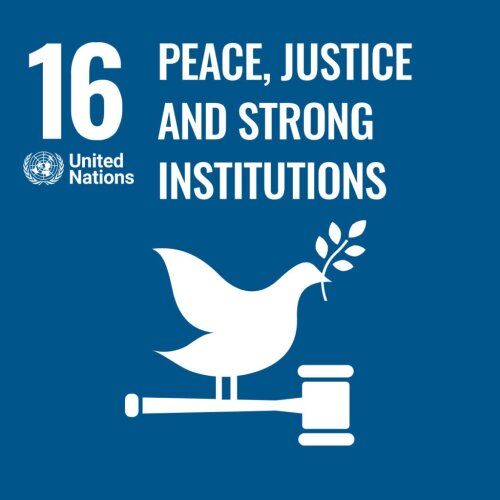Best Conveyancing Lawyers in Trinidad and Tobago
Share your needs with us, get contacted by law firms.
Free. Takes 2 min.
Free Guide to Hiring a Real Estate Lawyer
Or refine your search by selecting a city:
List of the best lawyers in Trinidad and Tobago
About Conveyancing Law in Trinidad and Tobago
Conveyancing is the legal process of transferring property ownership from one person to another. In Trinidad and Tobago, conveyancing encompasses a wide range of transactions involving residential, commercial, or agricultural properties. This process typically includes drafting legal documents, conducting property searches, verifying titles, and registering property with the relevant authorities. Conveyancing law ensures that all real estate transactions are legally valid, transparent, and protect both buyer and seller.
Why You May Need a Lawyer
There are many situations where you might require legal assistance for conveyancing in Trinidad and Tobago. For instance, if you are buying or selling a house, gifting property, mortgaging land, or subdividing land, you will need a qualified attorney to manage the process. Lawyers help by reviewing and preparing legal documents, conducting searches on title and encumbrances, negotiating terms, and representing your interests during settlements or disputes. Since property transactions often involve significant investments, legal guidance helps prevent costly mistakes, fraud, and disputes.
Local Laws Overview
Conveyancing in Trinidad and Tobago is governed by several key pieces of legislation and common law principles. The core laws include the Conveyancing and Law of Property Act, Title to Land (Validation) Act, and the Real Property Act. These statutes address the legal requirements for property transfers, registration of deeds, and procedures for establishing clear title. The Land Registry is the official repository for property records, and all property dealings must be registered there. Additionally, transactions often involve payment of stamp duty and adherence to planning and zoning regulations established by local authorities.
Frequently Asked Questions
What is involved in the conveyancing process?
The conveyancing process typically involves preparing and reviewing the sale agreement, conducting searches for clear title, verifying ownership, arranging for payment and registration of stamp duty, and lodging documents with the Land Registry to ensure the buyer is registered as the new owner.
Do I need a lawyer to buy or sell property in Trinidad and Tobago?
Yes, it is strongly advised to hire a qualified conveyancing lawyer. Property transactions can be complex and mistakes or omissions could result in legal disputes or loss of investment.
How long does conveyancing take?
The process varies depending on the complexity of the transaction, but standard residential conveyancing usually takes between six to twelve weeks from agreement to completion.
What are title searches and why are they important?
Title searches are investigations into public records to confirm the legal ownership and status of the property. They reveal any existing mortgages, liens, or disputes affecting the property, ensuring you receive clear title.
What is stamp duty and when is it paid?
Stamp duty is a government tax payable on the transfer of property. It is usually paid upon signing the deed of conveyance and is calculated based on the value of the property.
What happens if there is an outstanding mortgage on the property?
Any outstanding mortgage must be settled before the property can be legally transferred to a new owner. The seller's lawyer typically arranges for the discharge of mortgage as part of the transaction.
Can foreigners buy property in Trinidad and Tobago?
Yes, non-citizens can purchase property, but additional approvals or processes may apply, especially for land transactions in Tobago. Legal advice is recommended to navigate these requirements.
What risks are there if I do not use a lawyer?
Without legal representation, you risk buying property with undisclosed defects, encumbrances, or irregular title which may result in significant financial loss or legal disputes.
Is it possible to transfer property as a gift?
Yes, property can be transferred as a gift, commonly known as a Deed of Gift. This also involves conveyancing procedures and may attract stamp duty depending on the relationship between the parties.
What if there is a dispute during the conveyancing process?
Legal disputes may arise over boundaries, ownership, or contractual terms. Your lawyer can assist in negotiating settlements or, if necessary, represent your interests in court.
Additional Resources
You may find the following resources helpful when seeking information or assistance about conveyancing in Trinidad and Tobago:
- Land Registry Division of the Registrar General's Department of the Ministry of the Attorney General and Legal Affairs
- Law Association of Trinidad and Tobago
- Trinidad and Tobago Mortgage Finance Company Limited
- Town and Country Planning Division
- Legal Aid and Advisory Authority
Next Steps
If you need legal help with conveyancing in Trinidad and Tobago, consider the following steps:
- Gather all documents related to your property transaction, including identification, proof of ownership, and sale agreements.
- Research and select a reputable conveyancing lawyer who is familiar with local property laws.
- Schedule a consultation to discuss your specific needs, timeline, and legal costs involved.
- Work closely with your lawyer throughout the process, respond promptly to requests for information, and review all documents carefully before signing.
- Keep records of all communications, payments, and documents related to your conveyancing matter for your future reference.
You can also contact the Law Association of Trinidad and Tobago for lawyer referrals or the Legal Aid and Advisory Authority if you require assistance with legal fees.
Lawzana helps you find the best lawyers and law firms in Trinidad and Tobago through a curated and pre-screened list of qualified legal professionals. Our platform offers rankings and detailed profiles of attorneys and law firms, allowing you to compare based on practice areas, including Conveyancing, experience, and client feedback.
Each profile includes a description of the firm's areas of practice, client reviews, team members and partners, year of establishment, spoken languages, office locations, contact information, social media presence, and any published articles or resources. Most firms on our platform speak English and are experienced in both local and international legal matters.
Get a quote from top-rated law firms in Trinidad and Tobago — quickly, securely, and without unnecessary hassle.
Disclaimer:
The information provided on this page is for general informational purposes only and does not constitute legal advice. While we strive to ensure the accuracy and relevance of the content, legal information may change over time, and interpretations of the law can vary. You should always consult with a qualified legal professional for advice specific to your situation.
We disclaim all liability for actions taken or not taken based on the content of this page. If you believe any information is incorrect or outdated, please contact us, and we will review and update it where appropriate.
Browse conveyancing law firms by city in Trinidad and Tobago
Refine your search by selecting a city.













